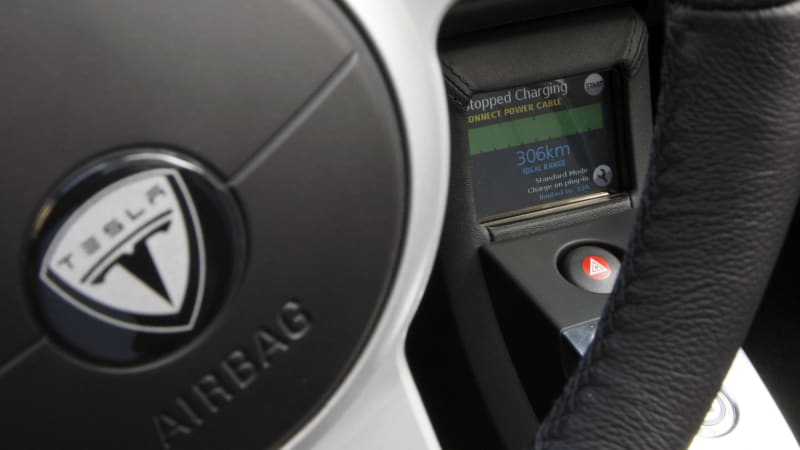Tesla faces federal DOJ investigation over 'rosy' vehicle range estimates

Federal prosecutors are looking into Tesla performance claims after Reuters reported the electric carmaker exaggerated the potential driving distance of its vehicles, the Wall Street Journal reported on Wednesday. Reuters reported in July that Tesla cars often fail to achieve their advertised range estimates and projections reported by the cars’ own equipment, citing experts who tested or studied them. The company wrote algorithms about a decade ago to create “rosy” in-dash driving range estimates, Reuters reported a source as saying, and set up a “Diversion Team” to cancel range-related service appointments.
The Austin, Texas-based electric carmaker deployed the team because its service centers were inundated with appointments from owners who had expected better performance based on the company’s advertised estimates and the projections displayed by the in-dash range meters of the cars themselves, according to several people familiar with the matter.
Reuters’ investigation found that Tesla formed the special internal team to seek out and cancel service appointments related to battery performance and range. Owners reported booking service visits to check battery health, only to receive messages that their vehicles were fine and that Tesla would like their appointments canceled. The automaker formed the “Diversion Team” to handle the thwarting because its service locations couldn’t keep up with requests from disappointed customers whose vehicles failed to deliver the expected range numbers.
The report claims that Tesla rigged its vehicles’ range software to project more generous distances than were accurate. The software would show more accurate range estimates when the batteries got down below a 50-percent charge. The vehicles also had a range buffer that enabled around 15 miles of driving after the range estimate reached zero. Interestingly, other EVs tested showed more accurate range estimates, and the Hyundai Kona was even found to underestimate its range.
Though shocking and potentially damaging to Tesla, it’s important to note that Reuters couldn’t pin down whether or not the automaker is continuing this practice today. Also, range manipulation allegedly took place in Tesla’s early days, when it offered only the Roadster and Model S. Today’s Tesla vehicles are still among the most generous from a range perspective but were still found to inadequately account for temperature changes by third-party testers.
The company has faced legal action in South Korea because its vehicles lost more than a quarter of their range in cold weather. Of course, Tesla isn’t alone in that regard, as temperature extremes impact the ranges of all electric vehicles. Driving style, road conditions, and terrain (hills, etc.) can also reduce range, as can using the vehicle’s climate controls.
Tesla faces many probes, including federal auto safety regulators looking at its Autopilot driver assistance product. The U.S. Attorney’s office in Manhattan also is investigating Tesla’s use of company funds on a secret project described internally as a house for Chief Executive Elon Musk, the Journal reported on Wednesday, citing people familiar with the matter. A spokesperson for the federal prosecutors’ office declined to comment on the Journal report on the probes. The U.S. Securities and Exchange Commission has also opened a civil probe, the Journal reported.
Includes Autoblog reporting.







